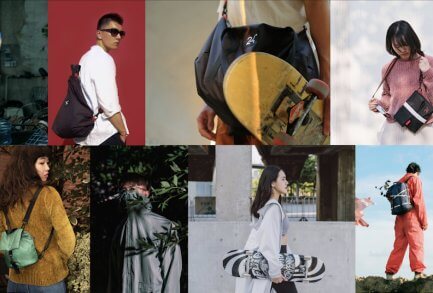Lucian Blaga University of Sibiu: Reinventing education
Taking a student design thinking project online
How might we reinvent education in the context of the COVID-19 pandemic?
That’s the design challenge that was set for a group of 127 students at Lucian Blaga University of Sibiu in Romania.
Following the success of the previous year’s face-to-face sprint, arranged to help students learn about social entrepreneurship and how design thinking can help solve problems in the community, the university wanted to do something similar in 2020.
Dr. Valentin Grecu at the Department of Industrial Engineering and Management worked in collaboration with three colleagues for this project – Anabella Beju (School of Social Sciences and Humanities), Alma Pentescu (School of Economics) and Lia Baltador (School of Economics).
When the pandemic made meeting in person impossible, Valentin looked into how they could move it online.

“I searched online for different solutions and decided Sprintbase would be great for what we needed because it gave us more oversight of what teams are doing, and it suited us to be able to move together from one step to the next.
“I had several meetings with Brian (at Sprintbase), before we started, and he explained the features, which was really helpful. He gave me access to sample sprints so I could test it with my colleagues prior to the event with students.
“I learnt how I could customise the platform for our needs, upload our own content and templates and translate things into Romanian. We could tell the students to check the guidelines for each phase, and we could share our PowerPoint presentations for our weekly meetings through the platform so everyone could access them easily.
“In Romania, we haven’t met our students face to face since March (2020), and everything has been online since then. This has been a big challenge for us and we thought we might involve the students in redesigning education in this online environment.”
Valentin Grecu,Department of Industrial Engineering and Management
The 127 students worked in teams of four or five people. They had 120 Sprintbase accounts, with observer accounts created for the rest so that students could play a role in keeping everybody on track, giving feedback and keeping people motivated.
The students hadn’t met each other before, and all come from different specializations. Some came from the school of engineering, some from the school of economics, and others came from social sciences and humanities. Teams were mixed and randomly assigned.

“Where it worked particularly well, the team took some time before the project started to get to know each other. Having that time to chat and become friends meant they could relate to one another and worked better together.”
Valentin Grecu,Department of Industrial Engineering and Management
Everybody met formally every Monday afternoon, where the facilitator explained each phase of the design thinking process. He then shared the expectations of teams for the week to come so they knew what they needed to do.
A group of four university professors acted as mentors for the teams. They kept office hours so that students could get in touch and ask questions.

“I could log into the platform and see what each team was doing and observe the different approaches they were taking. People were meeting and catching up in different ways, with some using WhatsApp groups, Zoom or Skype.
“Everybody got on well with Sprintbase and if we did encounter any problems, the training I’d had meant we could always find a solution.”
Valentin Grecu,Department of Industrial Engineering and Management
By the end, the students had made 1976 inputs in Sprintbase, with about 83 contributions per team.
Students presented their final ideas at the beginning of December 2020. Teams came up with a range of ways in which online education could work best for students, from anonymous feedback forms to a on-screen pop up to remind people to take time away from their computer.

“There were some quite interesting ideas, and some which could even be monetised. Students pinpointed problems that the academic community faces, and came up with feasible solutions. But that wasn’t our main intention, we wanted them to have a positive educational experience where they could do something hands-on, and develop skills they could use in their own lives.”
Valentin Grecu,Department of Industrial Engineering and Management
Valentin shares the benefits of running this project on Sprintbase
- The fact that they could work asynchronously when they had time was one of the greatest benefits. We wanted to simulate a real life situation, considering that we’re living in a globalized world, and you might work with people in different time zones and from different backgrounds and cultures. So we tried to create that on a smaller scale, with students coming from different faculties, specializations and schedules, and working together despite not knowing one another.
- Despite some initial trepidation amongst students about taking on a project in addition to their other work, feedback was really positive. They said everything was so clear and easy to follow on the platform, they could always see what was going to happen next.
- The design thinking process sometimes requires people to work individually and then in teams. I found Sprintbase made this more feasible than in-person working, as when they’re in the same room, students still tend to work together rather than alone. So it was good to have genuine independent contributions.
- I think when we can meet face to face, we could still use the platform to organize all our information – as we don’t have anywhere physical we could store everything throughout the weeks of a project.
- For the field research phase, it’s so much easier being able to check articles and sources online, rather than printing things out and sticking them on walls in the classroom. Being able to collate all your relevant content on the platform is much easier. So I would recommend a combination of online and offline work, even when we can meet in person.
Similar stories

How Rollins College moved its design thinking course online
Crummer Graduate School of Business discovers the benefits of running a virtual innovation course

How NBCUniversal used design thinking to develop future leaders
Using design thinking to teach high potential employees the value of empathy

Sustainable brand HowBottle uses design thinking to engage customers
A two-week virtual sprint using Sprintbase






